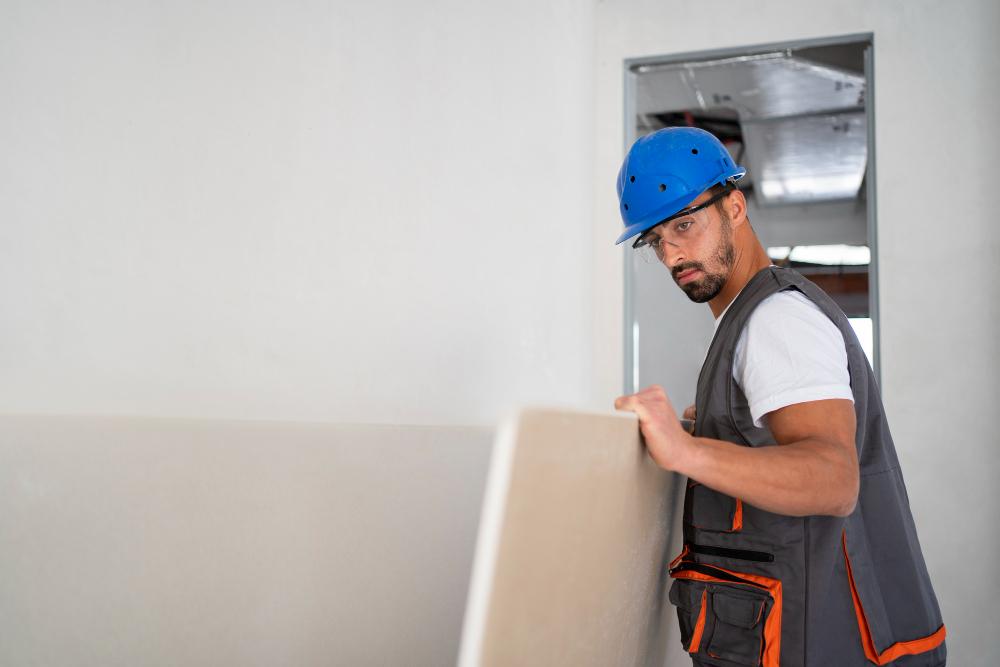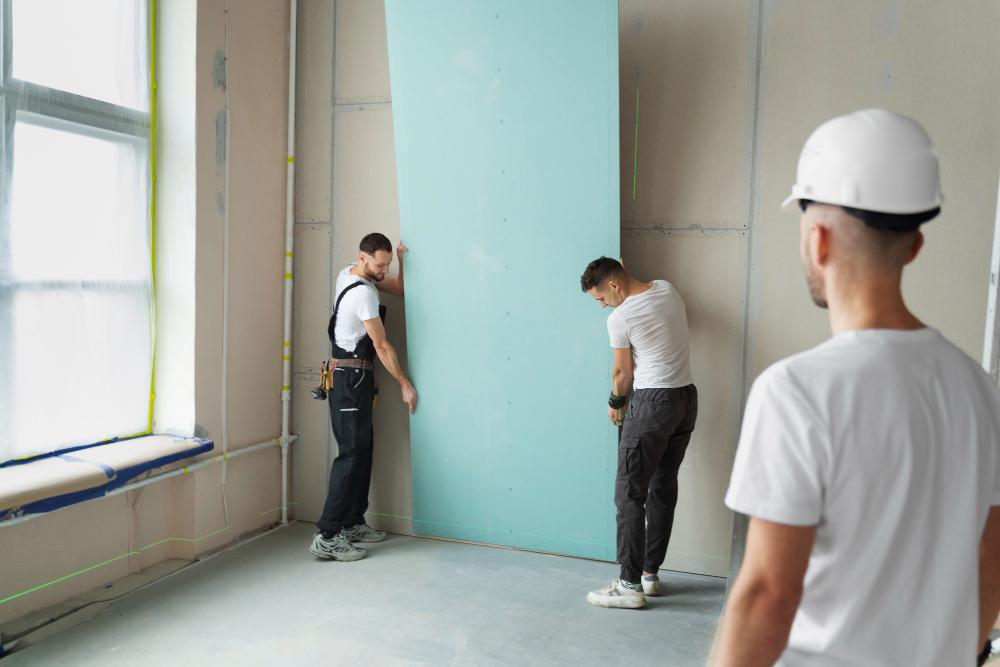Curved walls, uneven ceilings, cold and noise from neighbors? Installing drywall is a quick and clean way to straighten surfaces, add soundproofing, hide installations, and create modern lines. With the right team and specifications, the result is a smooth base for plastering and painting, better comfort, and less dust compared to wet plasters.

What does the service include
• Wall cladding — straightening of curved walls, space for installations and insulation.
• Suspended ceiling — leveling, cable concealment/lighting, acoustic option.
• Partition walls— quick zoning of spaces without wet processes.
• Niches, boxes, built-in lighting fixtures — clean design and functionality.
• Insulations — adding mineral wool for sound insulation and thermal insulation.
After installation come plastering, sanding, and painting for a perfect finish.
When drywall wins over "wet" plasters
• You have serious curves and want a quick and clean correction.
• It is necessary to hide installations/lighting or add sound insulation.
• You are planning a partition without heavy construction work (less noise/dust).
• You are looking for predictable timelines and a lower risk of cracking when the building moves..

Common mistakes and how to avoid them
Myth: „The drywall always sounds hollow and is brittle.“
Fact: With a correct system (proper profiles, density of fasteners, strips, and insulation), the wall is strong and acoustically better than poorly aligned plasters..
Myth: „Just a flat surface + foam is enough.“
Fact: Correct profiles, leveling, tape along the joints, and primer are needed. Missing element = cracks and poor sound insulation.
What to require in the offer (checklist):
• Type of system (pre-wall cladding/suspended ceiling/partition wall) and thicknesses.
• Profiles, distances, fasteners, strips, and angles; type of panels (standard, moisture-resistant, fire-resistant) .
• Insulations (wool: density/thickness) for sound insulation and comfort.
• Stages: installation → plastering (at least two coats) → sanding → paint.
• Deadline, warranty, cleanliness/waste removal, protection of premises.
Useful reading: 👉 Myths about specialists: it's time to get informed, not to guess
How a well-organized assembly takes place
1. Inspection and specification — measurements, insulation requirements, lighting, access openings.
2. Preparation — protection of the floor/furniture, marking of levels and lines.
3. Profile skeleton — laser leveling, correct fastenings.
4. Insulation and wiring — soundproofing/sound insulation and readiness for equipment.
5. Cladding and joints — surfaces, strips, corners, first coat of putty.
6. Finish — second/third coat of plastering, sanding, priming, and painting.
Thus, you have a smooth, durable, and acoustic foundation for the interior.
How long does it take and what does the budget depend on
It depends on the area, complexity (niche/multiple levels), number of partition walls, type of panels, insulation, and accessibility. A suspended ceiling in a standard room is often completed in 1–2 days (without painting). A complex apartment with niches/lighting and drywall requires a phased approach.
Tip: describe in detail — this way the offers are comparable and you avoid "surprises." Also, see: 5 signs that it's time to renovate your apartment.

How to choose the right team
• Portfolio with real "before/after," straight lines, and clean corners.
• Clear offer with the above checklist and fixed stages.
• Communication - fast, specific, with guidelines for care after installation .
• Reviews and warranty conditions.
Quick application plan
• Take 6–10 photos of the rooms, noting any bends/cracks .
• Add a sketch with dimensions and wishes (niche, hidden lighting, partition walls).
• Specify priorities: sound insulation, leveling, cable concealment, quick deadlines.
• Send the same specification to 2–3 contractors; compare stages, materials, and warranty.

Conclusion:
With drywall installation, you gain straight surfaces, a quieter and warmer home, and a clean preparation for the finish. With a clear specification and a proven team, the result is predictable, beautiful, and long-lasting — without excess dust and endless repairs..